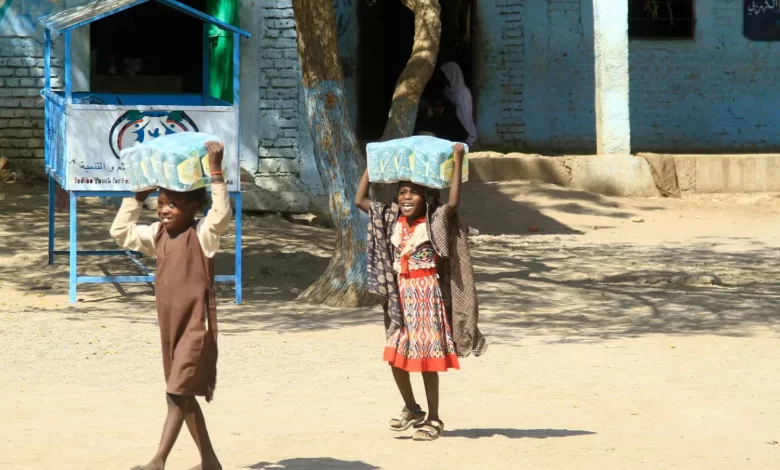Reports
The Crisis of Relief Material Sales Worsens in Sudan

Sudan Events – Agencies
The “Humanitarian Aid Commission” of the Sudanese government has denied any involvement in the sale of relief materials in the markets, confirming that “there is no leakage of humanitarian aid (from their side), and the actions of some citizens cannot be attributed to them.”
The crisis of selling relief materials in the markets has worsened in recent times. Sudanese citizens have reported seeing food supplies designated for aid being sold in public markets in several states, without oversight from the authorities.
However, the Humanitarian Aid Commissioner, Salwa Adam Baniya, told Asharq Al-Awsat that “the sale of a citizen’s share of relief aid in the market is not our responsibility,” noting that “some aid recipients are forced to sell their aid to purchase other necessary items, such as cornmeal and millet flour.”
The ongoing conflict between the military and the “Rapid Support Forces,” considered by the United Nations one of the worst humanitarian disasters in modern history, has resulted in the deaths of between 20,000 and 150,000 people, in addition to forcing around 11 million people to flee.
A Committee for Review
The government official revealed the formation of a committee consisting of representatives from several relevant institutions to review the stocks of certain organizations to determine what relief materials are present and why they have not been distributed.
She confirmed that “the committee will monitor the implementation of the organizations’ projects and will submit its report to the commission within two weeks for necessary action.”
On Monday, the United Nations reported that more than 30 million people, more than half of whom are children, need assistance in Sudan after 20 months of the devastating war. The UN issued an appeal to raise $4.2 billion to provide aid to 20.9 million people inside Sudan, out of a total of 30.4 million people who the UN says need assistance in what it termed “an unprecedented humanitarian crisis.”
In September 2023, the Cabinet issued a decision to dismiss the Humanitarian Aid Commissioner, Najm Al-Din Moussa, following media reports that pointed to “significant corruption” in the relief aid file.
Local Sudanese media have reported the sale of food supplies “in large quantities” in the markets of Port Sudan, which is the temporary capital of the country, while millions of displaced people in shelters in several states complain of a lack of aid.
Despite the arrival of thousands of tons of humanitarian aid shortly after the outbreak of the war in Sudan in April 2023, hundreds of thousands of displaced people in shelters in areas under the control of the Sudanese military have not received aid and rely on their own resources for survival.
Previous Leakage
Activists and volunteers in the humanitarian field told Asharq Al-Awsat that “leakage of humanitarian aid could happen before it reaches the shelters.”
Some of them explained that “food supplies do not reach all those in need due to their leakage into the markets,” and they speculated that “officials” might be involved in this leakage, though they did not specify names.
However, the activists themselves also confirmed that “some citizens sell the surplus of food materials in the markets,” and reported seeing “some of these materials in the homes of citizens.” Other activists in the city of New Halfa, in eastern Sudan, said they asked some store owners about the source of the goods (classified as aid) they had obtained, but they refused to disclose it.
In December, the first humanitarian aid reached southern Khartoum for the first time after 21 months of the war between the army and the “Rapid Support Forces.”
While the Sudanese government denies claims of famine in the country, the latest report from the Integrated Food Security Phase Classification indicates that 24 million people need urgent humanitarian aid.



